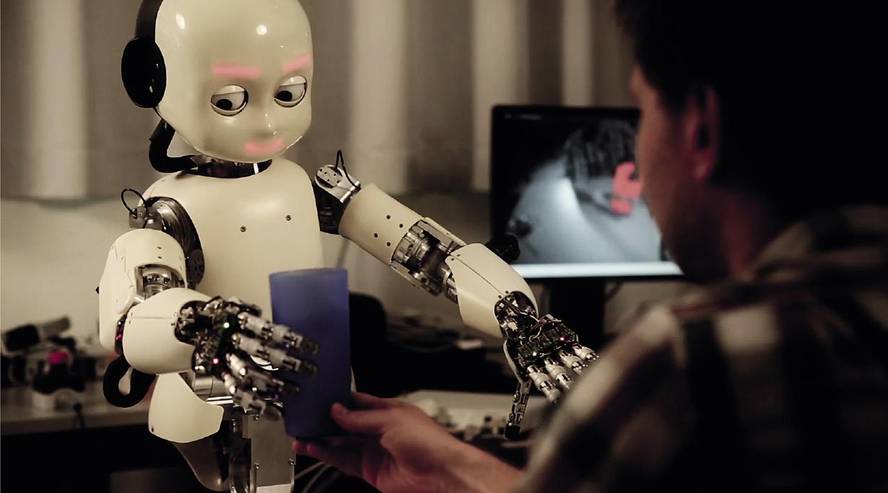Challenges and risks of artificial intelligence
The entire history of computing is filled with excessive hopes about certain technologies, abandonments and later reluctance. This has been the processing of natural language, machine translation, neural networks, virtual reality… All of them have become very fashionable. In the belief that the future was there, everyone has gone to work on them and, having not obtained the expected results, they have been totally discarded until they have been resumed.
With the creation of information technology, 50-60 years ago, very positive forecasts were made of what it was going to assume, especially in the field of artificial intelligence. It was thought that we would soon have robots that would act like humans. However, after years of effort, it was clearly seen that it was not so easy. And while artificial intelligence has never been completely abandoned, the academic world has continued with basic research, large companies have been limited to more feasible and profitable things.
Target large companies
However, in recent times, all large tech companies have begun to invest a lot in artificial intelligence. Everyone seems to see there the market and the money, and, like all the time that happens, everyone has gotten into a party to conquer that market in the future.
Some of these companies are investing in autonomous vehicles. Tesla, an electric car producer, is making increasingly autonomous cars, and its boss, Elon Muskiz, has recently announced that by the end of 2017 they will have a fully autonomous car on the street. Also known are the tests that Google is carrying out with autonomous cars, with the aim of developing a system made up of other manufacturers in the not so distant future (as has happened in Android phones). And Apple is also developing its own.
Others, however, are doing virtual assistances or dialogue agents. Google Assistant, Siri and Cortana helpers preinstalled on Android, iPhones and Windows phones respectively are known. And Amazon has released Amazon Echo and Google Home; they are two appliances that are installed in the living room, with the microphone always on, waiting for speech orders to put music or control appliances.
On the other hand, 2016 has been the year of the chatotazos. In fact, these are specialized dialogue agents that live within other applications or services, usually in instant messaging programs or social networks. Thus, if we add these chatbots as contact, we can ask questions or give orders in natural language about specialized areas (ask for time, order pizzas, make linguistic queries...) and respond as people. Telegram and Twitter have been chatbots for a long time and Facebook has it too.
All of them, to a greater or lesser extent, need artificial intelligence. It is clear, therefore, that artificial intelligence is the fashion technology in tech companies, and that they are investing a lot in it. Thanks to the capacity of today's machines, great advances are taking place, and the explosion of artificial intelligence may be definitive.
Concerns and risks
But not everything is gold. There are concerns about the artificial intelligence boom that we are experiencing today. One of them is that many researchers move from the scientific and academic world to companies. This can mean a setback of the academic world in the field of artificial intelligence, which is the one that puts knowledge within reach of all humanity, since companies reserve it for themselves. Another danger is the transfer of scientific research to commercial or visual objectives.
Some experts, for their part, have seen the recent advance of artificial intelligence, the capacity of machines that these companies have and that more and more processes and systems of the real world are controlled through interconnected machines, concerned about the future of apocalyptic science fiction films.
These experts are not any. Famous physicist Stephen Hawking says literally: “I believe that all the development of artificial intelligence can mean the end of humanity; if the human being develops artificial intelligence, artificial intelligence would begin to act by itself and would be redesigned more and more quickly; man, limiting the slow biological evolutions, could not compete with it and would be defeated.” Elon Muskiz, founder of Tesla, said: “I hope it’s not just the biological boot loader for digital superintelligence, which unfortunately is becoming increasingly likely.” And the author of the textbook, almost standard in the field of artificial intelligence in the last two decades, Stuart J. Russell believes it is not wise to develop artificial intelligence blindly, without thinking at least a little about potential risks.
One of Google's leaders, Eric Schmidt, wanted to chase away those fears by saying that today there is no danger and that fears are absurd. For this he used a single argument, I think wrong: Hawking and M are not computer scientists. At the same time, it was discovered that a Google artificial intelligence team was investigating ways to shut down the hypothetical artificial intelligences.
If they asked me, I would tell them that it is not wrong to have at least some prudence. Proof that the risk is real, what happened to Microsoft with Tay chat. To demonstrate its advances in artificial intelligence, Microsoft put the Tay chat on Twitter to hold natural conversations with young people. Tay learned from the real conversations of young people, through machine learning, and it seems that he learned too well, as he soon began to make racist, sexist, Nazi and tasteless comments. He retired before 24 hours. And if we manage to build intelligent machines like man, disaster is safe!







